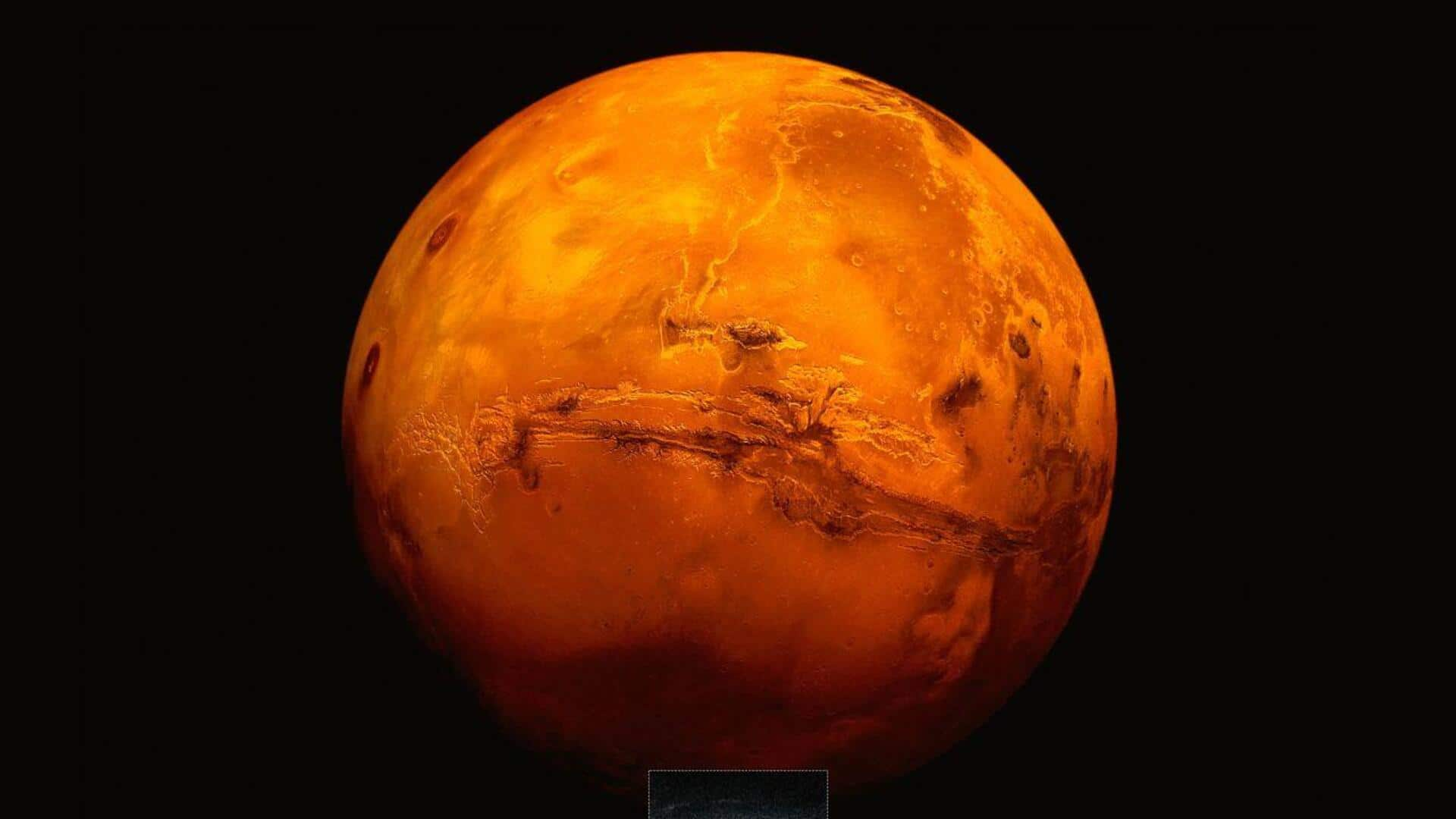
Musk wants to colonize Mars. This book questions its feasibility
What's the story
The concept of creating a new civilization on Mars, as envisioned by SpaceX CEO Elon Musk, has been thoroughly critiqued in an award-winning book. "A City on Mars: Can We Settle Space, Should We Settle Space, and Have We Really Thought This Through?" is the brainchild of Kelly and Zach Weinersmith. The couple delves into the brutal realities of life on the Red Planet, questioning Musk's ambitious plan to colonize it in three decades.
In-depth analysis
Authors explore challenges of colonization
The Weinersmiths delve into the complex issues humanity would face in becoming a multiplanetary species. They raise questions about creating space farms for food production, child-rearing on Mars, and the potential for a new space race. Their research has transformed their initial enthusiasm about human habitation on Mars into skepticism. The authors compare leaving an Earth warmed by two degrees Celsius for Mars to "leaving a messy room so you can live in a toxic waste dump."
Health hazards
Harsh environment poses significant health risks
The book emphasizes the major threats to human survival on Mars, such as its thin atmosphere, high radiation, and toxic soil. These factors could interfere with hormones and lead to developmental abnormalities in children. Mars's weak gravity could cause bone loss and muscle degradation, making childbirth difficult. The authors also mention that the planet's weak magnetic field provides little protection from cosmic and solar radiation, increasing cancer risks and causing cognitive decline.
Psychological impact
Mars's isolation could exacerbate mental health issues
The Weinersmiths also touch upon the psychological toll of Mars's isolation, which is an average 225 million km away from Earth. This distance could lead to communication delays of up to 24 minutes each way, exacerbating mental health problems and restricting emergency responses. The authors highlight the lack of a clear legal framework for space settlement, with current treaties not addressing modern concerns of resource use or territorial claims.
Technological hurdles
Authors question feasibility of Mars colony vision
Musk envisions a self-sustaining colony for one million people on Mars, relying on advanced technologies like closed-loop agricultural systems. However, the Weinersmiths argue these systems are still in their early stages. They suggest it would take generations to reach a point where we could be self-sustaining on Mars. Despite their skepticism about colonizing Mars, the authors support gradual progress in space exploration and caution against rushing into large-scale settlement plans without fully understanding the risks involved.